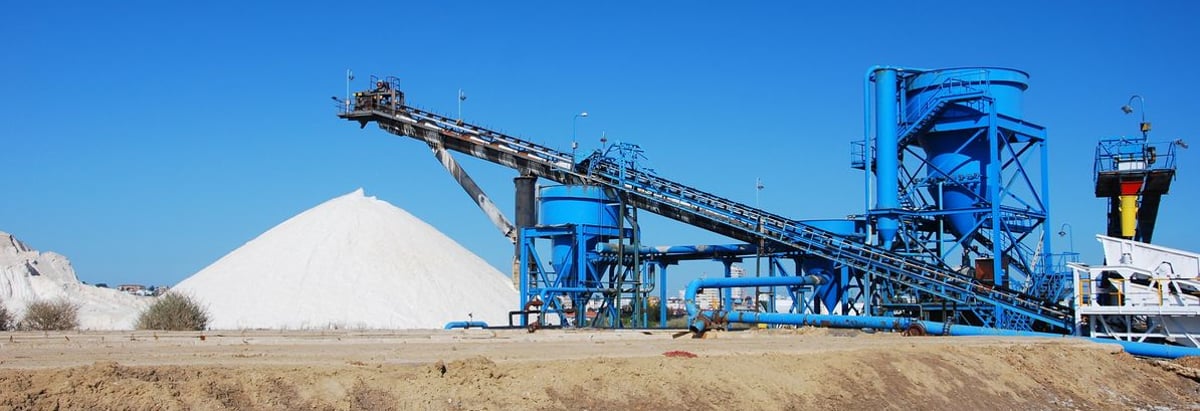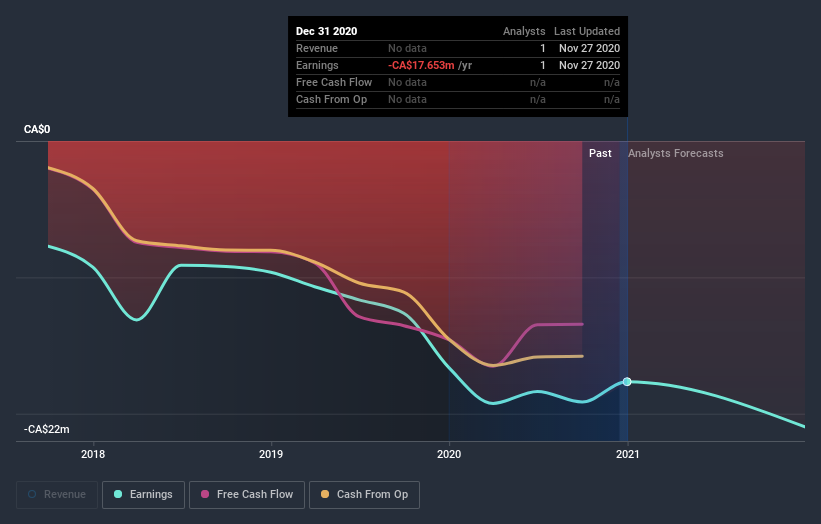- Canada
- /
- Metals and Mining
- /
- TSXV:ARU
What Type Of Shareholders Make Up Aurania Resources Ltd.'s (CVE:ARU) Share Registry?

The big shareholder groups in Aurania Resources Ltd. (CVE:ARU) have power over the company. Insiders often own a large chunk of younger, smaller, companies while huge companies tend to have institutions as shareholders. I quite like to see at least a little bit of insider ownership. As Charlie Munger said 'Show me the incentive and I will show you the outcome.
Aurania Resources is a smaller company with a market capitalization of CA$156m, so it may still be flying under the radar of many institutional investors. Taking a look at our data on the ownership groups (below), it seems that institutional investors have not yet purchased shares. Let's take a closer look to see what the different types of shareholders can tell us about Aurania Resources.
See our latest analysis for Aurania Resources

What Does The Lack Of Institutional Ownership Tell Us About Aurania Resources?
We don't tend to see institutional investors holding stock of companies that are very risky, thinly traded, or very small. Though we do sometimes see large companies without institutions on the register, it's not particularly common.
There are multiple explanations for why institutions don't own a stock. The most common is that the company is too small relative to funds under management, so the institution does not bother to look closely at the company. On the other hand, it's always possible that professional investors are avoiding a company because they don't think it's the best place for their money. Institutional investors may not find the historic growth of the business impressive, or there might be other factors at play. You can see the past revenue performance of Aurania Resources, for yourself, below.

Hedge funds don't have many shares in Aurania Resources. With a 45% stake, CEO Keith Barron is the largest shareholder. Meanwhile, the second and third largest shareholders, hold 0.7% and 0.08%, of the shares outstanding, respectively. Interestingly, the third-largest shareholder, Alfred Lenarciak is also a Lead Director, again, indicating strong insider ownership amongst the company's top shareholders.
Our studies suggest that the top 7 shareholders collectively control less than half of the company's shares, meaning that the company's shares are widely disseminated and there is no dominant shareholder.
While it makes sense to study institutional ownership data for a company, it also makes sense to study analyst sentiments to know which way the wind is blowing. There is a little analyst coverage of the stock, but not much. So there is room for it to gain more coverage.
Insider Ownership Of Aurania Resources
The definition of company insiders can be subjective and does vary between jurisdictions. Our data reflects individual insiders, capturing board members at the very least. The company management answer to the board and the latter should represent the interests of shareholders. Notably, sometimes top-level managers are on the board themselves.
Insider ownership is positive when it signals leadership are thinking like the true owners of the company. However, high insider ownership can also give immense power to a small group within the company. This can be negative in some circumstances.
It seems insiders own a significant proportion of Aurania Resources Ltd.. It has a market capitalization of just CA$156m, and insiders have CA$72m worth of shares in their own names. This may suggest that the founders still own a lot of shares. You can click here to see if they have been buying or selling.
General Public Ownership
The general public, who are mostly retail investors, collectively hold 54% of Aurania Resources shares. This level of ownership gives retail investors the power to sway key policy decisions such as board composition, executive compensation, and the dividend payout ratio.
Next Steps:
It's always worth thinking about the different groups who own shares in a company. But to understand Aurania Resources better, we need to consider many other factors. For example, we've discovered 5 warning signs for Aurania Resources (2 are concerning!) that you should be aware of before investing here.
If you would prefer discover what analysts are predicting in terms of future growth, do not miss this free report on analyst forecasts.
NB: Figures in this article are calculated using data from the last twelve months, which refer to the 12-month period ending on the last date of the month the financial statement is dated. This may not be consistent with full year annual report figures.
If you’re looking to trade Aurania Resources, open an account with the lowest-cost* platform trusted by professionals, Interactive Brokers. Their clients from over 200 countries and territories trade stocks, options, futures, forex, bonds and funds worldwide from a single integrated account. Promoted
New: Manage All Your Stock Portfolios in One Place
We've created the ultimate portfolio companion for stock investors, and it's free.
• Connect an unlimited number of Portfolios and see your total in one currency
• Be alerted to new Warning Signs or Risks via email or mobile
• Track the Fair Value of your stocks
This article by Simply Wall St is general in nature. It does not constitute a recommendation to buy or sell any stock, and does not take account of your objectives, or your financial situation. We aim to bring you long-term focused analysis driven by fundamental data. Note that our analysis may not factor in the latest price-sensitive company announcements or qualitative material. Simply Wall St has no position in any stocks mentioned.
*Interactive Brokers Rated Lowest Cost Broker by StockBrokers.com Annual Online Review 2020
Have feedback on this article? Concerned about the content? Get in touch with us directly. Alternatively, email editorial-team@simplywallst.com.
About TSXV:ARU
Aurania Resources
A junior exploration mining company, engages in the identification, evaluation, acquisition, and exploration of mineral properties in Ecuador, Peru, France, and Switzerland.
Medium-low with imperfect balance sheet.
Market Insights
Community Narratives


